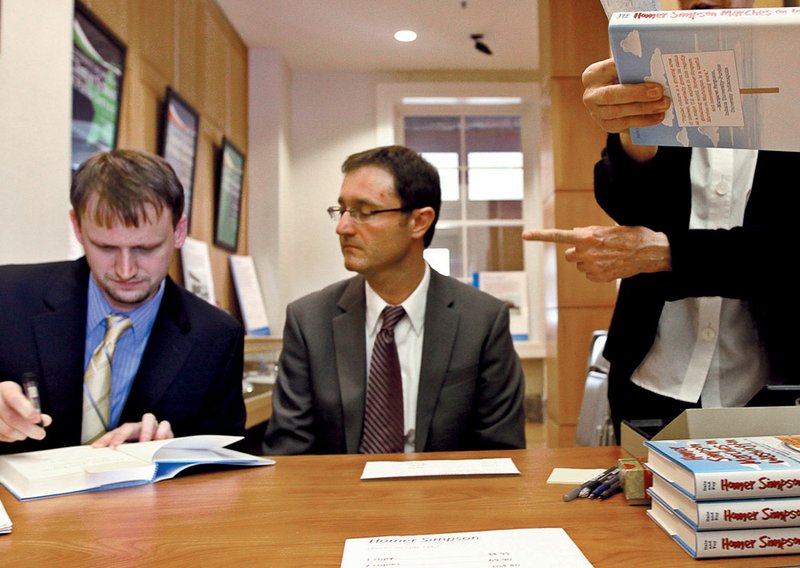LITTLE ROCK — Fast food restaurants began offering apple wedges and side salads as an alternative to french fries in response to a movie, not a legislative mandate, a pair of political science professors said Friday.
After an “embarrassing” depiction in the 2004 film Supersize Me, in which director Morgan Spurlock documented the physical effects of eating nothing but McDonald’s food for a month, popular fast-food restaurants began offering items like milk, yogurt and apple wedges on their carbohydrate- and grease-filled children’s menus.
Years later, federal healthcare legislation signed into law this spring set a coming requirement for restaurant chains to post calorie information on menu boards and drive-through signs.
“Media and consumer culture are political activities that have a rightful place in our conception of the public sphere,” said Joe Foy, a political science professor at the University of Wisconsin at Waukesha.
Foy and Tim Dale, a political science professor at the University of Wisconsin at Green Bay, discussed their book, Homer Simpson Marches on Washington: Dissent through American Popular Culture, at the University of Arkansas Clinton School of Public Service on Friday.
Popular culture has increasingly become a valid part of the political process, exposing people to new ideas and driving them to action, the pair said.
The responses, both in the marketplace and the voting booth, may be more powerful than politicians understand, Dale said.
“We can’t assume a separation of our day-to-day actions from our democratic ideals,” he said.
Dale cited the sitcom Ellen, which brought homosexuality into the public dialogue when Ellen DeGeneres used it as a forum to discuss her attraction to women with Oprah Winfrey, who played a cameo role as a therapist on the famous episode.
In a more overt way, politicians have attempted to harness the power of pop culture in recent elections, appearing in far more entertainment shows than they have in the past, Foy said.
He highlighted former President Bill Clinton as a pioneer in understanding how entertainment could extend the notion of the public sphere.
The Southern governor expanded public interest as a presidential candidate by appearing on television with a saxophone and sunglasses and answering the now-famous “boxers or briefs” question on an MTV forum (“usually briefs,” Clinton said).
The concept has evolved into shows like The Daily Show with Jon Stewart and The Colbert Report, which blur the lines between parody and political commentary, taking guests with them, Dale said.
Stewart and Stephen Colbert have become so influential that, when they announced a pair of October rallies in Washington, conservative talk show host Glenn Beck was concerned not about their stinging remarks but about their ability to mobilize young liberal voters days before the election, he said.
The fuzzy line between news and entertainment is evidenced when Stewart “calls himself the most trusted name in news, tongue-in-cheek, and then gets voted the most trusted name in news” in public polls, Foy said.
The professors discussed their writings the same day Colbert, in character as a foppish conservative commentator, testified before a House Judiciary Panel about offering citizenship to illegal aliens serving as agricultural workers in the United States.
In a satirical speech that yielded laughs from the assembled crowd, Colbert shared his own experiences working in a field. In the process, he made the argument that illegal aliens serve a necessary role in the American economy, an argument made by immigrant groups.
“Apparently, even the invisible hand doesn’t want to pick beans,” Colbert said in a video on The Washington Post website.
The appearance and Colbert’s bid for the presidency in the 2008 South Carolina primary show his ability to use humor to drive home points that may otherwise be ignored by his audience, Dale said.
“I think it’s helpful to be reminded that these people actually do care,” he said.
Arkansas, Pages 9 on 09/25/2010
